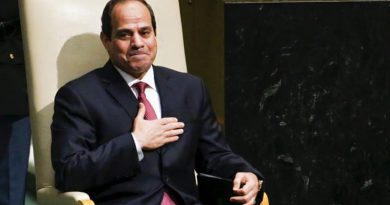France’s Top Court Overturns Vivendi Control Ruling, Extending Uncertainty Over Possible Buyout
A fresh retrial has reopened questions about whether the Bollore family holds effective control of Vivendi, leaving a potential multibillion-euro buyout of minority shareholders unresolved.
France’s highest civil court has overturned a ruling that previously determined the Bollore family exercised de facto control over media and entertainment giant Vivendi, extending a long-running legal dispute that could determine whether a mandatory takeover offer must be triggered.
The earlier ruling by the Paris Court of Appeal concluded that the family’s influence exceeded its formal voting stake, arguing that board representation, operational involvement and broader influence contributed to a level of effective control.
The new decision by the Cour de Cassation sets aside that interpretation and orders a retrial, prolonging uncertainty about whether minority shareholders will eventually receive a buyout offer valued in the billions of euros.
The case was brought forward by activist investor CIAM, which argued that the Bollore group’s role amounted to control under French takeover law even though their declared stake remained under the 30% threshold.
Representatives for minority shareholders say the latest decision does not close the door entirely on their position, noting that the court rejected only the reasoning—not the possibility—that broader factors might still be considered in determining influence.
The court did not state that takeover assessments must rely solely on voting rights, leaving open the potential for further legal argument about what constitutes meaningful corporate control in France.
At the core of the dispute is whether the Bollore family effectively directed Vivendi after its corporate restructuring in 2024, despite holding a 29.9% stake through Bollore SE, just below the regulatory trigger for a mandatory offer.
The appeals court had earlier decided that Vivendi’s treasury shares should be included when assessing the Bollore stake, a move that would push their influence above the threshold and obligate a formal buyout.
During recent hearings, lawyers for Vivendi argued that the appeals court exceeded its authority in redefining control, while legal representatives for the Bollore family said the court had improperly broadened the concept beyond established legal standards.
The Cour de Cassation ruled that control could not be inferred based on subjective factors such as personal reputation or perceived influence, rejecting arguments that the presence of Vincent Bollore or his authority at shareholder meetings was evidence of operational command.
However, the ruling does not eliminate the possibility that other forms of influence may still be examined,
meaning the retrial could again test the boundaries of what constitutes de facto control in complex corporate structures.
A new appeals court will now hear the case, though it will be limited in scope by the legal findings already established by the Cour de Cassation.
The timeline for this retrial has not yet been set, adding another layer of uncertainty to a process that has drawn close scrutiny from corporate governance experts.
The outcome carries significant financial implications, as a ruling in favour of minority shareholders could compel one of Europe’s most influential business families to finance a substantial buyout.
Vivendi remains a major force in media, advertising, publishing and entertainment, and any forced restructuring of ownership could reshape strategic decisions across several interconnected sectors.
Vincent Bollore, who oversees Compagnie de l’Odet—owner of roughly 71% of Bollore SE—retains a central leadership role, while his children hold prominent positions across the group’s various business entities.
Observers say the retrial will be closely followed within French corporate circles, as the final decision may influence how future cases interpret thresholds of control in situations involving influential shareholders with minority stakes.
While the court’s decision resets the legal debate, its broader implications may shape corporate governance standards for years to come.



